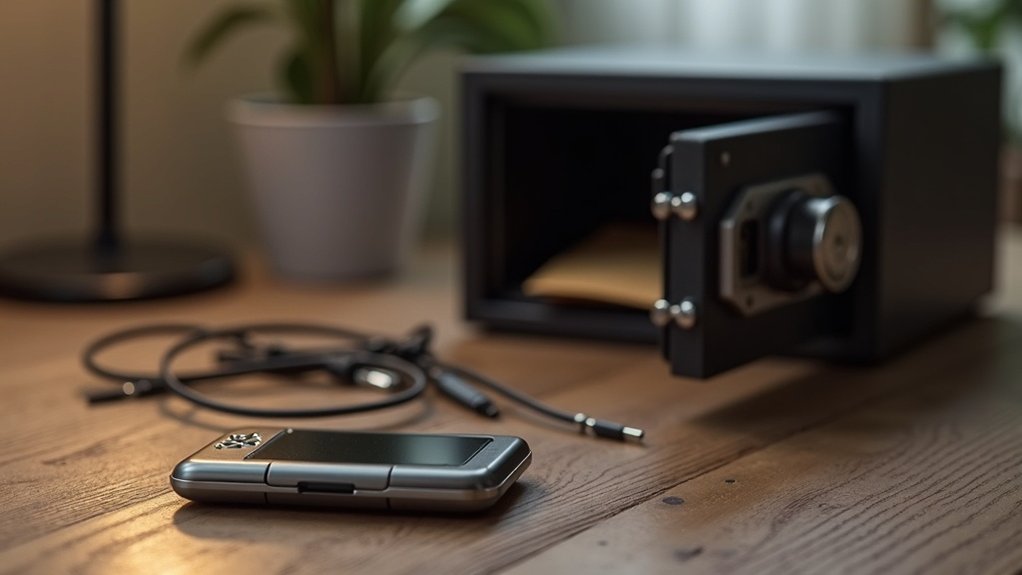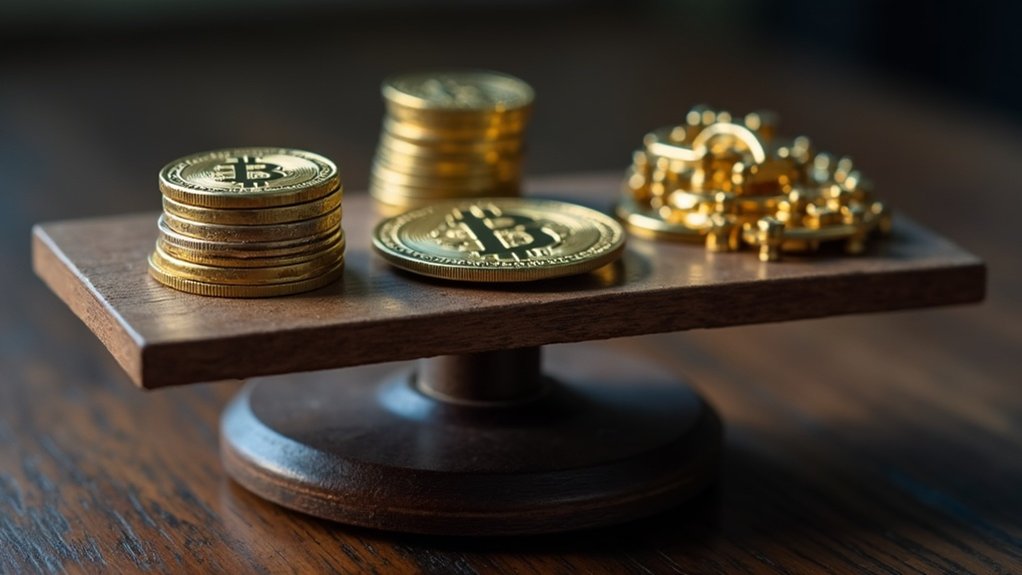Bitcoin storage comes down to managing private keys, not actual coins. For maximum security, cold storage options like hardware wallets keep keys offline, away from hackers. Hot wallets offer convenience but less protection. Never store seed phrases digitally—write them down and keep them somewhere fireproof. Double-check addresses before sending transactions. Use new addresses for better privacy. Cryptocurrency mistakes are permanent—one wrong move and those coins vanish forever. The following guide explains everything in detail.
The digital gold rush isn’t slowing down. Bitcoin owners face an essential question: where to keep their digital fortune? The answer isn’t simple. Bitcoin wallets don’t actually store coins—they store private keys. These keys grant access to your Bitcoin on the blockchain. Lose them, and you can kiss your crypto goodbye. Forever.
Cold storage represents the gold standard for Bitcoin security. Unlike “hot wallets” connected to the internet, cold wallets keep private keys offline, away from hackers’ greedy fingers. Hardware wallets like Ledger Nano, Trezor, and KeepKey dominate the market. These small devices connect via USB or Bluetooth when needed, then disconnect to maintain security. Sound wallets offer another alternative by storing private keys in encrypted audio files. Many users opt for custodial wallets through exchanges, trading security for convenience.
Paper wallets offer another offline option—literally printing private keys on paper. Old school, but effective.
Setting up cold storage isn’t rocket science. Choose a reputable hardware device. Install the accompanying software on a clean computer. Then comes the essential part: the recovery seed phrase. Usually 12-24 random words, this phrase is your lifeline if your device breaks or disappears. Store it somewhere fireproof, waterproof, and away from prying eyes. Not on your computer. Not in your email. Not in a photo on your phone. Seriously.
Cold storage comes with trade-offs. Security increases, convenience decreases. Hardware wallets balance this tension better than paper options. They’re physical objects, though. They can be lost, stolen, or damaged. The recovery seed solves this problem—unless you lose that too.
Transaction security requires vigilance. Always double-check addresses before sending. Perform test transactions with small amounts. Use the hardware wallet’s screen to verify details before confirming. Enabling two-factor authentication adds an essential layer of protection against unauthorized access to your digital assets.
New address for each transaction? Smart move for privacy.
The cryptocurrency landscape is unforgiving. One wrong move and your Bitcoin vanishes into the digital void. No customer service to call. No password reset option. Just empty pockets and regret. Choose non-custodial options whenever possible. Your keys, your coins. Someone else’s keys? Well, you know how that ends.
Frequently Asked Questions
What Happens to My Bitcoin if I Lose My Hardware Wallet?
Losing a hardware wallet isn’t game over for your Bitcoin. The funds remain on the blockchain, not in the physical device. As long as the recovery seed phrase was properly backed up, the Bitcoin can be fully recovered on a new wallet.
Without that seed phrase though? Those coins are gone forever. Locked away in digital purgatory. Millions in Bitcoin have vanished this way. The hardware is replaceable. The seed phrase isn’t.
Can Exchanges Be Trusted for Long-Term Bitcoin Storage?
Exchanges are not ideal for long-term Bitcoin storage. Period.
They’re giant targets for hackers. Remember FTX? Yeah, that happened. About 34% of crypto users don’t trust exchanges, and for good reason.
Many exchanges hold IOUs, not actual Bitcoin. They’ve lost billions to hacks, with users averaging $150 losses per incident.
Hot wallets connected to the internet are vulnerable. Most experts recommend keeping only 10% on exchanges.
The rest? Cold storage.
How Often Should I Update My Wallet Software?
Wallet software needs regular updates.
Critical security patches should be applied immediately—within hours for high-risk wallets.
Hot wallets require more frequent updates than cold storage due to their online exposure.
Weekly updates for protocol improvements, monthly security audits, and quarterly recovery tests are recommended.
Hardware wallets need fewer updates, but still require firmware maintenance.
Bottom line: update schedules depend on wallet type and risk level.
Ignore updates and you’re basically inviting hackers to your crypto party.
Are Multi-Signature Wallets Worth the Additional Setup Complexity?
Multi-signature wallets are absolutely worth it for serious crypto holders.
The math is simple: more keys, more security. Period. For businesses, teams, or anyone with substantial assets? No-brainer.
Sure, setup is a pain—multiple keys, backups, recovery protocols—not exactly weekend fun. But compared to losing everything because of one compromised key? Small price to pay.
Not necessary for small-timers though. Those holding pocket change can stick with simpler solutions.
Risk versus reward.
What’s the Best Practice for Sharing Recovery Phrases With Trusted Family?
Families sharing recovery phrases should stick to offline methods—period. No texts, no emails.
Use fireproof safes or metal backups stored in separate locations. Limit knowledge to absolute minimum trusted individuals.
And for heaven’s sake, educate these people properly! Too many horror stories start with “my uncle thought it was just a password.”
Clear protocols matter: who accesses when, what happens if someone dies, how to verify identity. No shortcuts here.








